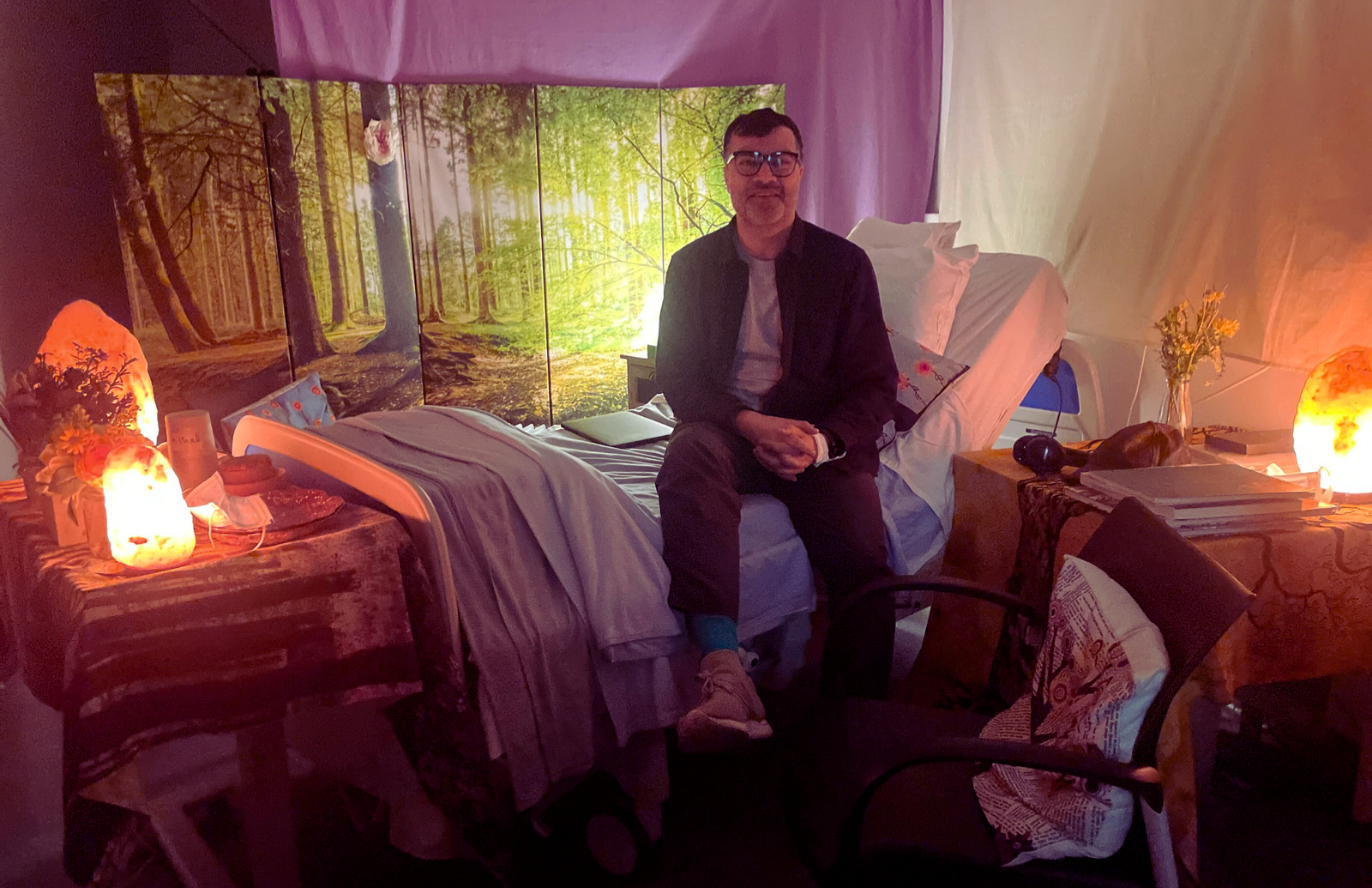Music Curation - Psilopain Study
At the start of 2021, I Was contacted by Nick Sabine, founder of Resident Advisor, who asked if I’d like to get involved with curating music for an Imperial College research project involving psilocybin.
Nick had heard my 24-hour radio station Ambient Flo and knew that I was interested in sound therapy and the power of music as therapy. He had been asked by the project lead, James B Close, to find a team of DJs who would form a panel of music experts tasked with selecting songs that would be played to chronic pain sufferers that had ingested Psilocybin, a psychoactive compound similar modelled on the naturally occurring magic mushroom.
James is part of the Centre for Psychedelic Research, a department at Imperial that has been rigorously researching the utility of a range of psychedelic drugs in treating a variety of mental health conditions, including depression and anorexia. The history of psychedelic research is fascinating and has been widely documented in recent times.
If you’d like to dig deeper, we would highly recommend Michael Pollan’s How To Change Your Mind book (and the subsequent Netflix series by the same name), or Nikhil Shah’s ‘Rough Guide To Psychedelics’.
Both writers comprehensively cover the history dating back to the 60s and 70s, when the drug broke out from the scientific confines of the lab and birthed a cultural phenomenon, which was in turn banned by governments globally, under the still ongoing banner of the ‘War on Drugs’. As a result, these drugs were driven underground and all scientific or medicinal research ended. It took 30 years for new permissions to be granted to begin testing again, leading to the current global interest in these compounds.
So far, results are extremely promising, and institutions now have 10 years of evidence that they yield little to no adverse consequences - psychosis, schizophrenia, addiction, and more.
Imperial College, alongside Johns Hopkins in the US and others around the world, are paving the way for a new era of psychedelics that has the potential to help people with a wide range of issues, relating to the mind, which seems especially pertinent at this present time, when we are all facing a plethora of problems, from the continuation of COVID-19 pandemic to the current energy crisis.
In James B Close's words:
“Music is an essential component of the psychedelic-assisted therapy. When developing our Psilopain study, we quickly recognised that we needed someone with a deep understanding of music and its applications. Brian d'Souza’s background in sound therapy, music psychology and experience as a DJ made him the ideal candidate for the job. Using the Swell technology allows seamless playback, with the flexibility our guides need to deliver music effectively”

The Psilopain Study
Music plays a fundamental role in all psychedelic research. Scene and setting are hugely important. Patients are taken to a room designed to look unlike a hospital or lab space - no white walls, etc. They are designed to be comfortable, with a bed and chair, nature scape imagery, salt lamps and spiritual objects.
Trials utilise at least one trained ‘guide’ who will be with them throughout their experience, which will last between 8-10 hours. Patients are given a blindfold and headphones and allowed time to become comfortable with the setting. When ready, they are given a dose of the drug and left to experience what they experience. The dosing is set at a high level to ensure maximum impact. In the industry, this is commonly known as a heroic dose.
The Psilopain Project investigates the effects of synthetic psilocybin on sufferers of Fibromyalgia, a chronic pain condition. There are no tests for fibromyalgia, and it can only be diagnosed by excluding all other possible sources of pain. It is thought to be a result of maladaptive sensory processing in the central nervous system. This makes it hard to treat, and the factors influencing the perception of pain could be vastly different between patients. The outcomes of the condition vary too, for some it is something that has minor implications on their daily life, for others it is totally debilitating, leading to them being restricted to their homes and unable to work or participate in basic tasks.
Listen to James talking about this research as part of Brian's show on Worldwide.fm.
Make it stand out
It all begins with an idea. Maybe you want to launch a business. Maybe you want to turn a hobby into something more. Or maybe you have a creative project to share with the world. Whatever it is, the way you tell your story online can make all the difference.
Make it stand out.
It all begins with an idea. Maybe you want to launch a business. Maybe you want to turn a hobby into something more. Or maybe you have a creative project to share with the world. Whatever it is, the way you tell your story online can make all the difference.


